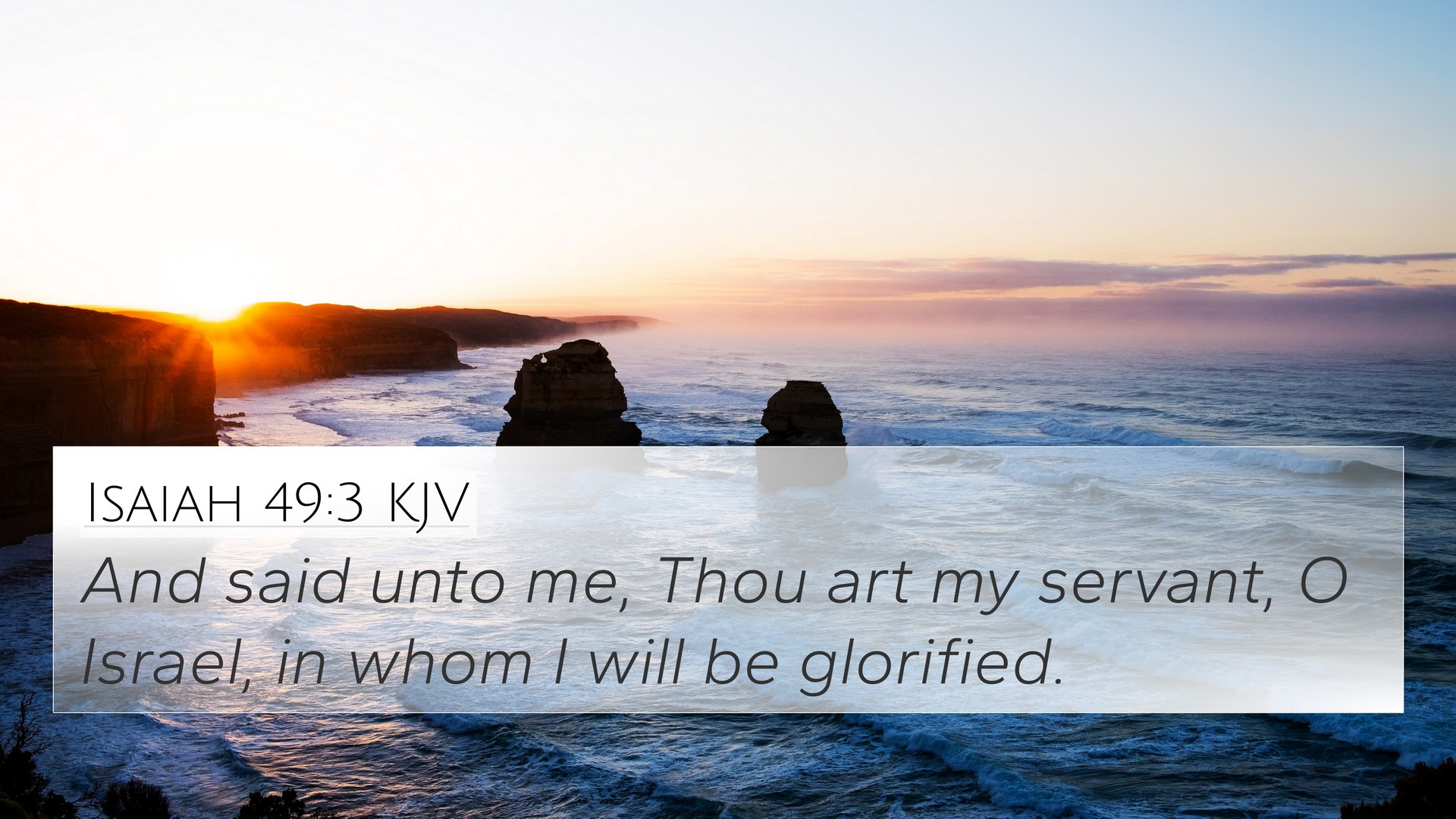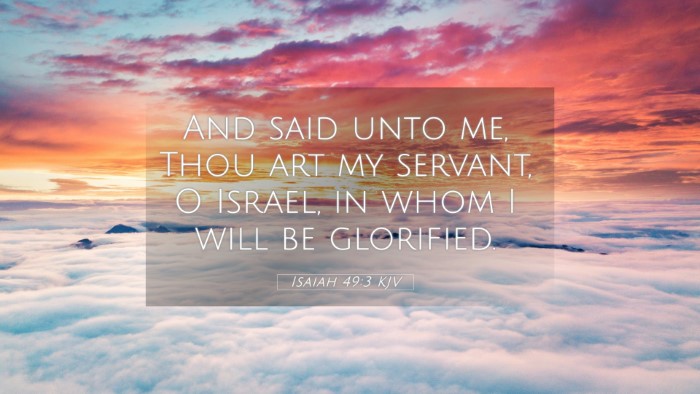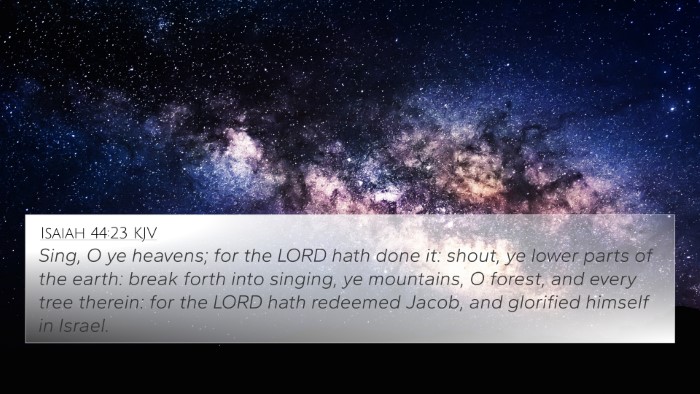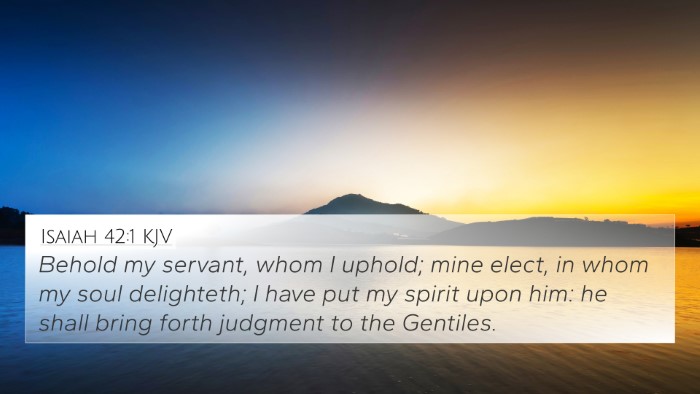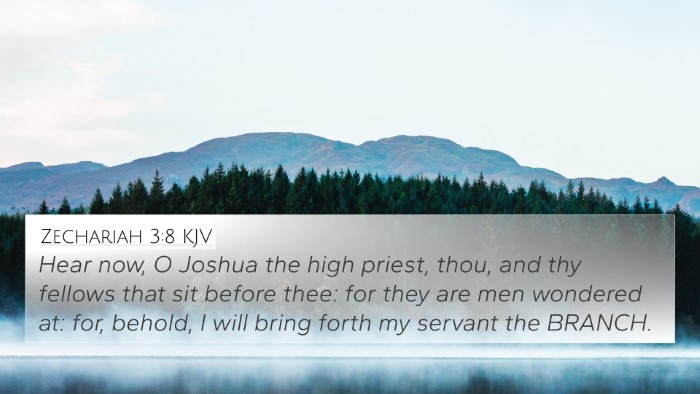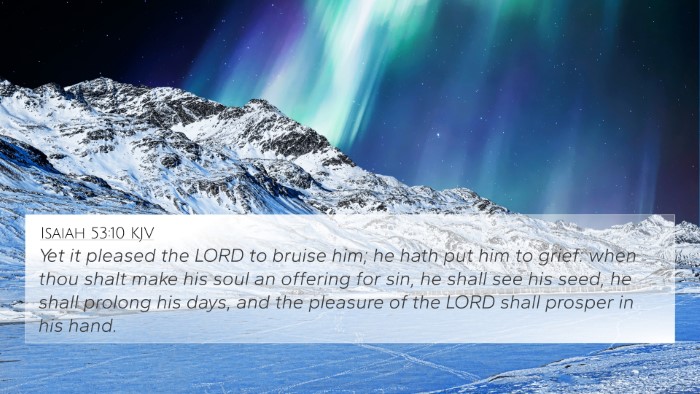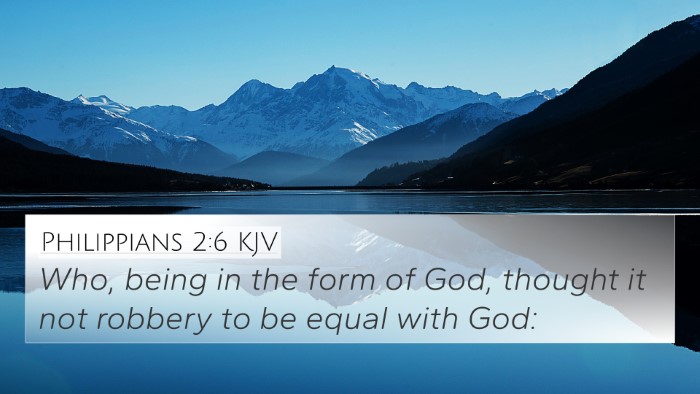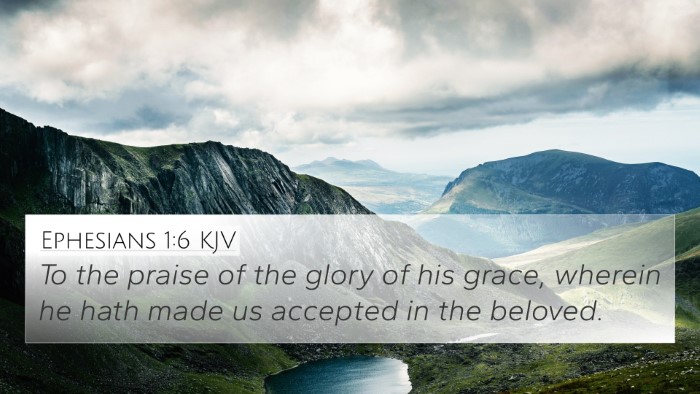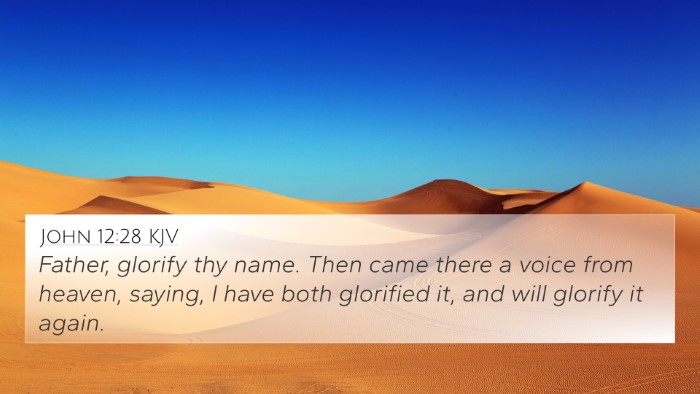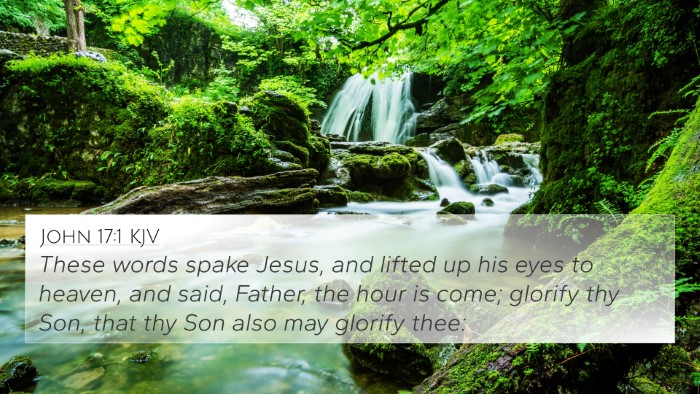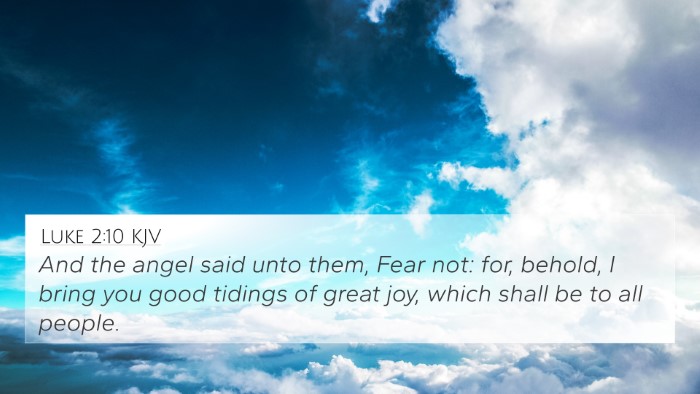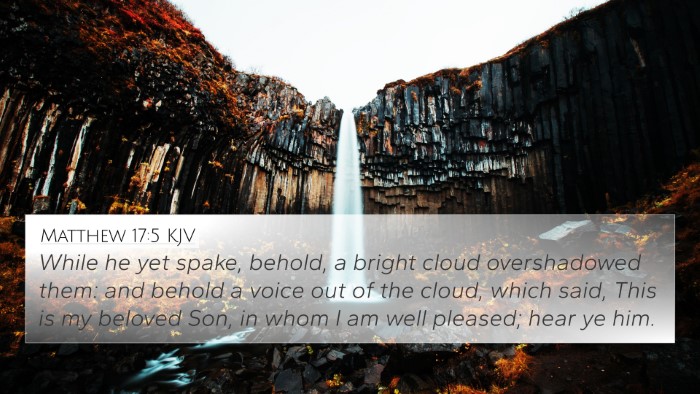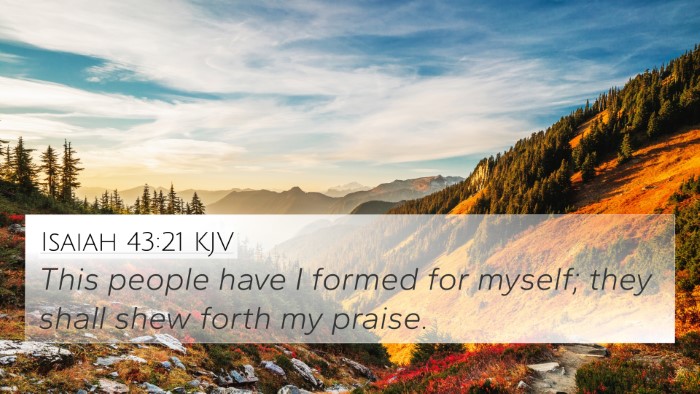Understanding Isaiah 49:3
Isaiah 49:3 states: "And said unto me, Thou art my servant, O Israel, in whom I will be glorified." This profound verse addresses God’s relationship with Israel and highlights the unique role of the nation as His servant. It provides a foundational understanding of Israel's identity and purpose in the divine plan.
Comprehensive Analysis of the Verse
This verse can be observed from various perspectives through the insights of esteemed commentators such as Matthew Henry, Albert Barnes, and Adam Clarke. Below is a synthesis of their interpretations woven together to provide a deeper understanding:
Matthew Henry's Commentary
Matthew Henry emphasizes that God calls Israel His servant. This denotes a special relationship and trust. Henry explains that while the verse primarily addresses the nation of Israel, it also foreshadows Christ, the ultimate servant of God, who embodies the fullness of Israel’s purpose. The glorification mentioned suggests that through the servanthood, both Israel and Christ fulfill God’s redemptive mission to bring forth salvation to the world.
Albert Barnes' Insights
Albert Barnes interprets the designation "Thou art my servant" as a call to service and a reminder of the divine purpose for Israel. He states that this role comes with the responsibility to reflect God's glory to the nations. Barnes notes the contrasting characteristics of the servant's suffering and glory, indicating that the path to exaltation often passes through trials. This understanding invites deep reflection on the nature of servanthood in a biblical context.
Adam Clarke's Explanation
Adam Clarke outlines the verse's implications regarding the calling and mission of Israel. He underscores that the declaration represents not only an acknowledgment of Israel’s role but also a prophetic anticipation of the coming Messiah. Clarke further highlights that God's glorification of Israel implies that through their faithfulness and mission, God's light would shine upon the Gentiles, thus expanding the narrative to include all of humanity.
Key Themes and Connections
The themes of servanthood, divine purpose, and glory are central in Isaiah 49:3. The following connections can be drawn:
- Servanthood and Mission: The role of being a servant signifies a higher calling to exemplify God’s attributes, which is echoed in Isaiah 42:1 where the servant is chosen to bring forth justice.
- Glorification: The theme of God glorifying His servant resonates with John 17:10 where Jesus speaks of glorification in His relationship with the Father.
- Trust and Responsibility: This verse hints at trust given to Israel, mirrored in Romans 9:4-5, which discusses the privileges of the Israelites.
- The Messiah’s Role: The messianic interpretation correlates to Matthew 12:18, where Jesus is described as God's chosen servant.
- Divine Purpose: The purpose of servanthood reaches fulfillment in 1 Peter 2:9, emphasizing a holy nation meant to proclaim God’s praises.
- Light to the Nations: The vision that Israel would bring light to Gentiles is anticipated in Isaiah 60:3, reinforcing the broader mission of God’s people.
- Connection to New Covenant: The servanthood concept is foundational for understanding the New Covenant in Hebrews 8:10, where God identifies His people with a new heart.
Further Connections and Cross-References
Cross-referencing is essential for a holistic understanding of scripture. Below are additional references that complement the study of Isaiah 49:3:
- Isaiah 50:10 - Asks the servant to trust in the Lord in darkness, portraying the challenges faced.
- Isaiah 53:11 - Speaks to the suffering servant who bears the iniquities of many, connecting the themes of sacrifice and servanthood.
- Luke 2:32 - References Jesus as a light to the Gentiles, directly linking to the themes in Isaiah.
- Acts 13:47 - Affirms the call to be a light to the Gentiles, depicting the fulfillment of Isaiah's prophecy.
- Romans 1:16 - Highlights the power of the gospel for salvation to everyone who believes, connecting the mission of Israel with the church.
- Galatians 3:28 - Expands the concept of servanthood to all believers, emphasizing unity in Christ.
- Ephesians 2:19-20 - Frames believers as members of God’s household, deepening the understanding of divine servanthood.
Conclusion
Isaiah 49:3 encapsulates the essence of divine servanthood, the glorification that comes from fulfilling God’s purpose, and the promise of redemption through the Messiah. By cross-referencing this verse with others, one gains deeper insights into the interconnectedness of Bible verses and the overarching narrative of God’s relationship with His people. Such thematic explorations enrich the understanding of scripture and invite believers to reflect on their own roles as servants of God in today's world.
Tools for Further Bible Study
To facilitate deeper biblical studies and cross-referencing, consider using:
- Bible Concordance: A tool for locating verses and understanding their meanings.
- Bible Cross-Reference Guide: Assists in identifying relationships between verses.
- Cross-Reference Bible Study Methods: Effective methods to study thematic connections in scripture.
- Bible Reference Resources: Comprehensive materials available for in-depth study.
- Bible Chain References: Techniques to trace interconnections in biblical texts.
